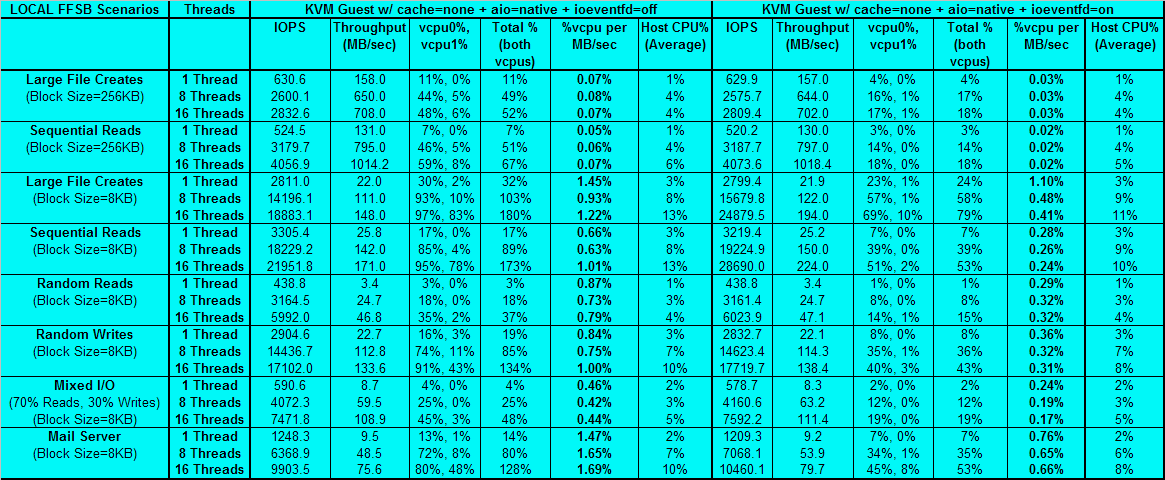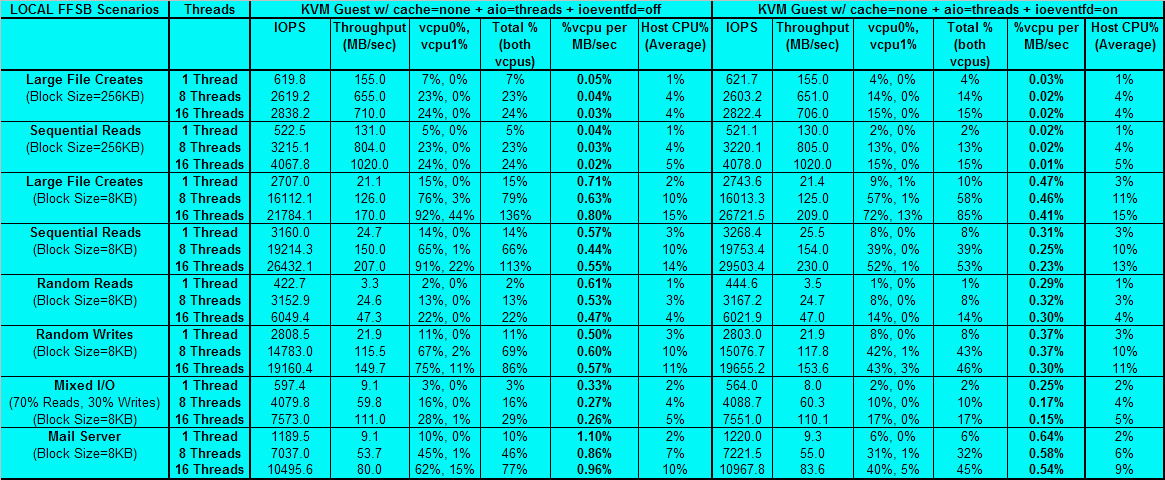Features/VirtioIoeventfd: Difference between revisions
(Created page with 'Virtqueue notify is currently handled synchronously in userspace virtio. This prevents the vcpu from executing guest code while hardware emulation code handles the notify. On s…') |
m (moved Features-Done/VirtioIoeventfd to Features/VirtioIoeventfd over redirect) |
||
| (3 intermediate revisions by 2 users not shown) | |||
| Line 13: | Line 13: | ||
The following performance results show an 8 core * 2 hyperthreaded host running the FFSB benchmark against high-end SAN-backed storage. | The following performance results show an 8 core * 2 hyperthreaded host running the FFSB benchmark against high-end SAN-backed storage. | ||
Not only does throughput increase, but more importantly CPU utilization per MB/s improves. | |||
==aio=native== | |||
[[File:virtio-ioeventfd-native-cpu.gif]] | |||
==aio=threads== | |||
[[File:virtio-ioeventfd-threads-cpu.gif]] | |||
[[Category:Completed feature pages]] | |||
Latest revision as of 14:51, 11 October 2016
Virtqueue notify is currently handled synchronously in userspace virtio. This prevents the vcpu from executing guest code while hardware emulation code handles the notify.
On systems that support KVM, the ioeventfd mechanism can be used to make virtqueue notify a lightweight exit by deferring hardware emulation to the iothread and allowing the VM to continue execution. This model is similar to how vhost receives virtqueue notifies.
The result of this change is improved performance for userspace virtio devices. Virtio-blk throughput increases especially for multithreaded scenarios and virtio-net transmit throughput increases substantially.
The following performance results show an 8 core * 2 hyperthreaded host running the FFSB benchmark against high-end SAN-backed storage.
Not only does throughput increase, but more importantly CPU utilization per MB/s improves.


